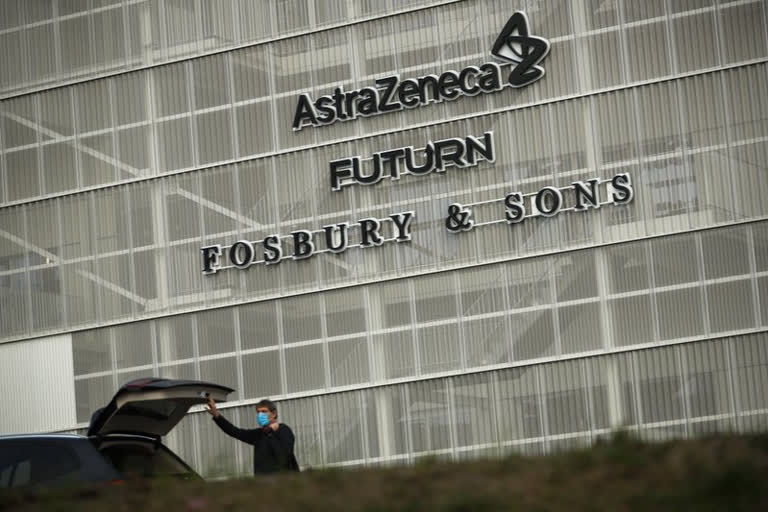Brussels: The European Union introduced tighter rules Friday on exports of COVID-19 vaccines that could hit shipments to nations like the United Kingdom, deepening a dispute with London over scarce supplies of potentially life-saving shots.
But amid an outcry in Northern Ireland and the UK, the European Commission made clear the new measure will not trigger controls on vaccines shipments produced in the 27-nation bloc to the small territory that is part of United Kingdom bordering EU member Ireland.
Under the post-Brexit deal, EU products should still be able to travel unhindered from the bloc to Northern Ireland.
“In the process of finalization of this measure, the Commission will ensure that the Ireland/Northern Ireland Protocol is unaffected,” the EU’s executive arm said in a statement late Friday.
Amid a dispute with Anglo-Swedish drugmaker AstraZeneca, EU Commission president Ursula von der Leyen and British leader Boris Johnson had an unexpected phone call, during which the UK prime minister “expressed his grave concerns about the potential impact which the steps the EU has taken today on vaccine exports could have,” a statement from the British government read.
The UK and Northern Ireland governments immediately lashed out at the move, saying the bloc invoked an emergency clause in its divorce deal with Britain to introducing controls on exports to Northern Ireland. Goods are supposed to flow freely between the EU and Northern Ireland under special arrangements for the U.K. region designed to protect the peace process on the island of Ireland.
Read:|AstraZeneca pulls out of vaccine talks, says EU
But the EU later said it was not invoking Article 16 of the Northern Ireland Protocol allowing either side to override parts of their deal.
“The Commission is not triggering the safeguard clause,” it said in its statement, adding that the restricting regulations have yet to be finalized and won’t be adopted before Saturday.
The phone call between von der Leyen and Johnson somewhat eased what was quickly becoming a diplomatic flashpoint.
“We agreed on the principle that there should not be restrictions on the export of vaccines by companies where they are fulfilling contractual responsibilities,” von der Leyen said in a statement.
The EU hit out at AstraZeneca this week after the company said it would only supply 31 million doses of vaccine in initial shipments, instead of the 80 million doses it had hoped to deliver. Brussels claimed AstraZeneca would supply even less than that, just one-quarter of the doses due between January and March — and member countries began to complain.
The European Commission is concerned that doses meant for Europe might have been diverted from an AstraZeneca plant on the continent to the U.K., where two other company sites are located. The EU also wants doses at two sites in Britain to be made available to European citizens.
